Sometimes we feel really busy because of all the sounds we need to make, especially when the phones ring with texts, we have to finish things quickly, or a lot to worry about. We might feel muddled inside with much happening all at once. But there’s something exceptionally positive called meditation that helps us pause. It’s a bit like hitting a pause button when we need some peace.
Meditation isn’t only for quiet time or being healthy–it’s like grasping onto a floaty when you need help in the pool. When we meditate, we have a special spot to just take deep breaths, think a little, and get ready to go again. It’s like learning to be the leader of our feelings and thoughts without letting the anomalous in our heads drive the car —, taking a sort of back seat.
And instead of running around and doing a zillion things, with meditation, we remember how to just sit still and be ourselves. That’s pretty amazing.
What Is Meditation?
Meditation is the practice of intentionally quieting the mind and focusing inward. It can take many forms — from breath awareness and guided imagery to mantra repetition and mindfulness. But at its core, meditation is about presence. It invites you to step out of the past and the future and into the now. You don’t need to sit in a lotus position or chant ancient words. You just need to pause, breathe, and notice. That’s where the magic begins.
Meditation is not only simply about trying to make your mind empty like an empty basket. That’s not true at all. When you are meditating, sometimes you think of things – like pizza your dog, or maybe space. And that’s fine. What matters is that, when your thoughts start performing their role, you just notice them—rather like saying hello—and then you come back to watching your breath–your quiet technique is.
It’s like a but this isn’t, in fact, the case trade, where every time your thoughts want to take you on a trip, you bring your focus right back. By playing this game, you can train your mind to become exceptionally adept at paying attention and remaining calm when circumstances are overwhelming. And it may help your heart not feel so squished when you’re sad or upset.
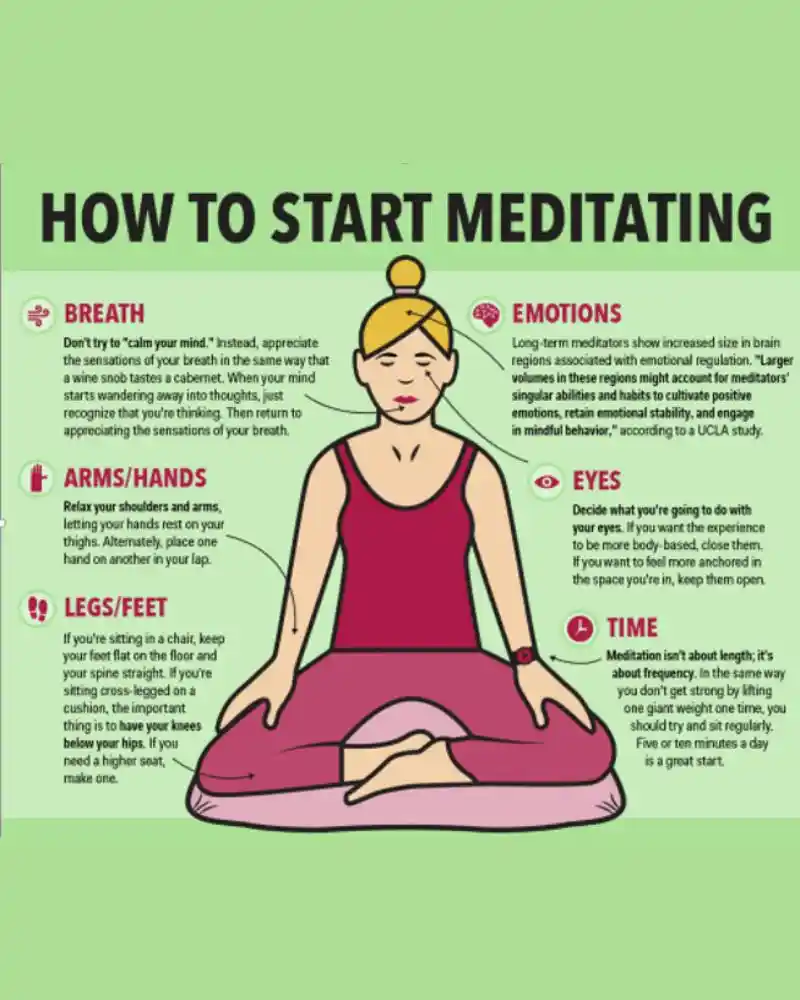
Image Source: starcelebinfo.com
The Science Behind Meditation: Why It Works
Meditation helps our minds in an exceptionally positive way–amazing! It’s not only something people do to feel good. Brain pictures, like those from a special camera, show that people who meditate a lot have more grey matter in their brains—this helps with emotions, decision-making, and social interactions. Do you know? If you meditate a lot, it can make you pause because it lowers the stress in our bodies called cortisol.
It even helps you sleep better, pay attention more in class, and remember things easier.
Practicing meditation strengthens the prefrontal cortex — the part of the brain responsible for logic and self-control — and reduces activity in the amygdala, the area associated with fear and stress. Over time, this rewiring helps you respond to life’s challenges with clarity instead of panic. In essence, meditation doesn’t change your life overnight, but it changes how you experience your life — and that changes everything.
Emotional Benefits of Meditation: Healing from the Inside Out
Many of us carry emotional weight that never gets processed — anxiety, grief, anger, burnout. Meditation becomes a safe space where those feelings can surface without judgment. You start to observe your emotions instead of being consumed by them. You begin to see that your thoughts are not facts and that you are not your feelings. This emotional detachment doesn’t make you cold — it makes you wise. You stop spiraling in every difficult moment and instead meet yourself with compassion.
Meditation also fosters self-awareness. When you sit in stillness daily, you start noticing your patterns — how you react under stress, the stories you tell yourself, the fear beneath your anger. And with awareness comes choice. You begin responding instead of reacting. That’s powerful healing.
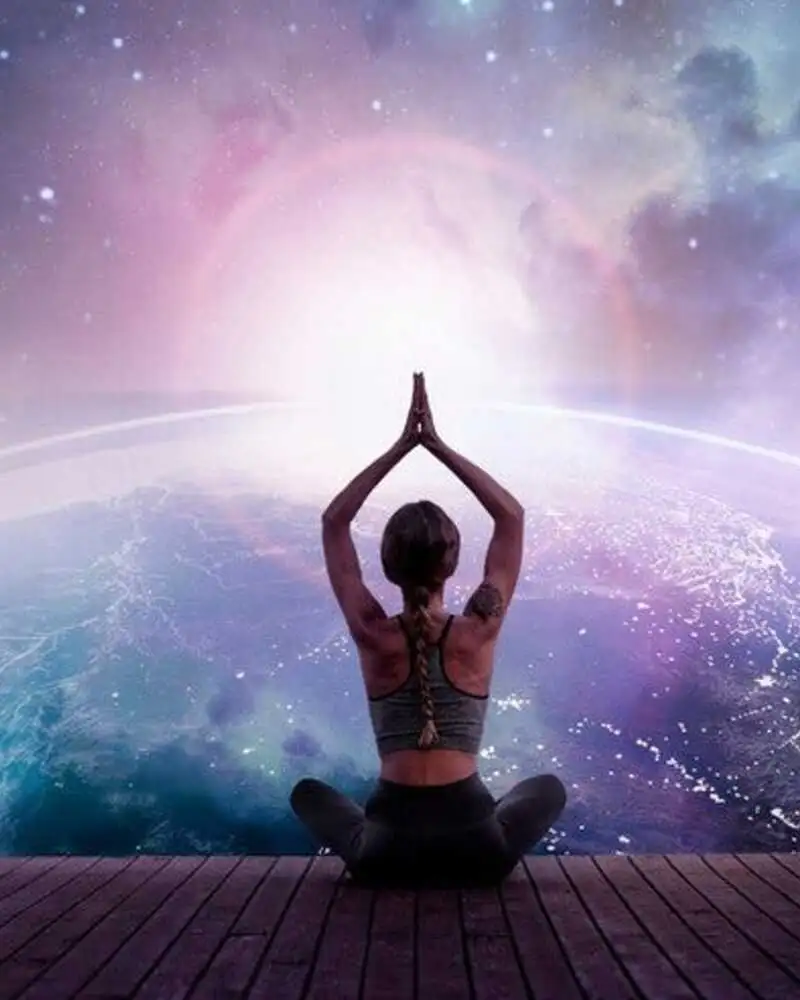
Image Source: starcelebinfo.com
Physical Benefits of Meditation: A Healthier Body from a Calmer Mind
What happens in your mind reflects in your body. When you meditate, your nervous system shifts from fight-or-flight mode to rest and digest. This reduces blood pressure, slows your heart rate, and improves immune function. Meditation has also been shown to reduce chronic pain, ease symptoms of depression, and even aid in digestion.
Many people report better sleep, fewer headaches, and more energy after just a few weeks of consistent meditation. It’s as if the body finally gets permission to relax and repair. You begin to feel more alive — not because anything outside has changed, but because you’ve cleared space inside.
Different Types of Meditation: Finding What Works for You
Meditation is terrific, owing to you can do it however you want. There’s no one special way everyone has to do it. It concerns paying close attention to today. Thinking calm thoughts about others, and finding ways to feel better and not hold onto negative emotions during practices known as loving-kindness meditation, can help people construct ways to get along better.
When you practice mindfulness meditation, you watch your breathing and everything around you but don’t think it’s good or not good, you just notice it. It starts with you and after being nice to you speak!
Body scan meditation is similar to when you think about each part of your body one by one and make it feel not so tight or stiff. When you do mantra meditation, you keep saying special words such as om over and over to help calm your mind and make yourself feel happy and rise up. If you’re new and never tried things before, you can start with guided meditation, because you listen to someone–and they tell you things to picture in your head, or how to make your body unfathomably relaxed.
Experiment with these and trust your intuition. The best meditation is the one you’ll return to.
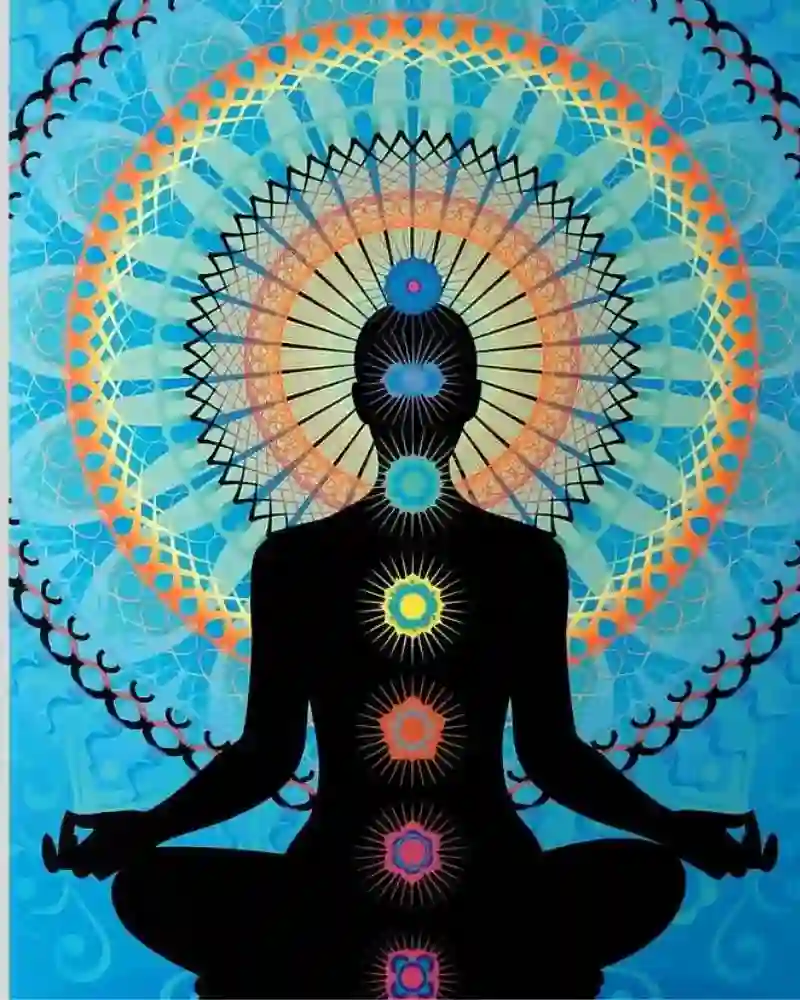
Image Source: starcelebinfo.com
Meditation and Mental Health: A Tool for Modern Survival
In today’s high-stress world, mental health is a growing concern — and meditation offers a natural, accessible way to support it. It’s not a replacement for therapy or medication, but it can be a powerful complement. Regular practice has been shown to reduce symptoms of anxiety, depression, and PTSD. It helps break the loop of overthinking and brings a sense of grounded calm, even in difficult moments.
More than anything, meditation gives you a sense of control — not over the world, but over your reactions. And in a time when so much feels out of our hands, that’s an incredible gift.
How to Start Meditating: A Gentle Guide for Beginners
The key to starting a meditation practice is simplicity. Begin with just five minutes a day. Find a quiet space, sit comfortably, and focus on your breath. Inhale deeply. Exhale slowly. When thoughts arise — and they will — gently bring your attention back to your breath.
You don’t have to do everything right. Feeling calm at the very start isn’t a significant deal. It’s great just to try. To get help, try fun apps such as Insight Timer, Calm, or Headspace. Maybe you start with five minutes, and later, maybe it becomes ten minutes or even twenty minutes! Remember, it’s not good to push too hard. Construct it like a fun time out where you can just be you for a bit.
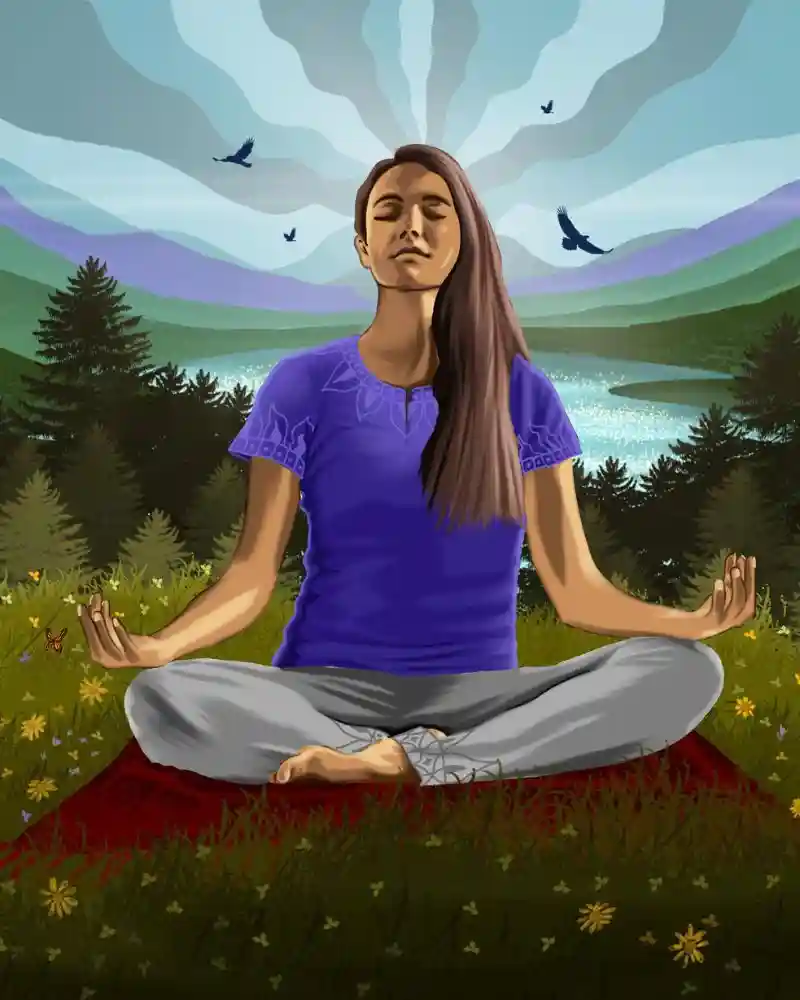
Image Source: starcelebinfo.com
Making Meditation a Daily Ritual
To build a lasting habit, link your meditation practice to something you already do. Meditate right after brushing your teeth, during your morning coffee, or before bed. Create a small ritual — light a candle, sit in the same spot, and play soft music. Ritual brings intention, and intention deepens practice.
Some days, your thoughts might be unfathomably loud, like a noisy playground, and you just can’t wait for quiet time. On those days you might not feel like sitting still and letting your thoughts settle. But that’s alright. Even if your mind is ringing and it’s hard to be patient, you should try to meditate anyway. Meditating is not about being perfect at it.
It’s just about showing up and being real with it. Even on the tough days when you’re fidgety and your thoughts are speedy, that’s when you need to give meditation a chance the most.
Check out the others Articles.
Frequently Asked Questions
1. How long should I meditate each day?
Start with 5-10 minutes and increase gradually. Even a few minutes of stillness can have a powerful impact.
2. What if I can’t stop thinking during meditation?
It’s normal to have thoughts. The goal isn’t to stop thinking but to observe your thoughts and gently refocus.
3. When is the best time to meditate?
Morning meditation sets a peaceful tone for the day, while evening meditation helps release stress. Choose what fits your schedule and energy best.
4. Do I need to sit cross-legged to meditate?
Not at all. Sit however you feel comfortable — in a chair, on the floor, or even lying down.
5. Can meditation replace therapy or medication?
No, but it can complement them beautifully. Always consult a professional for mental health support.
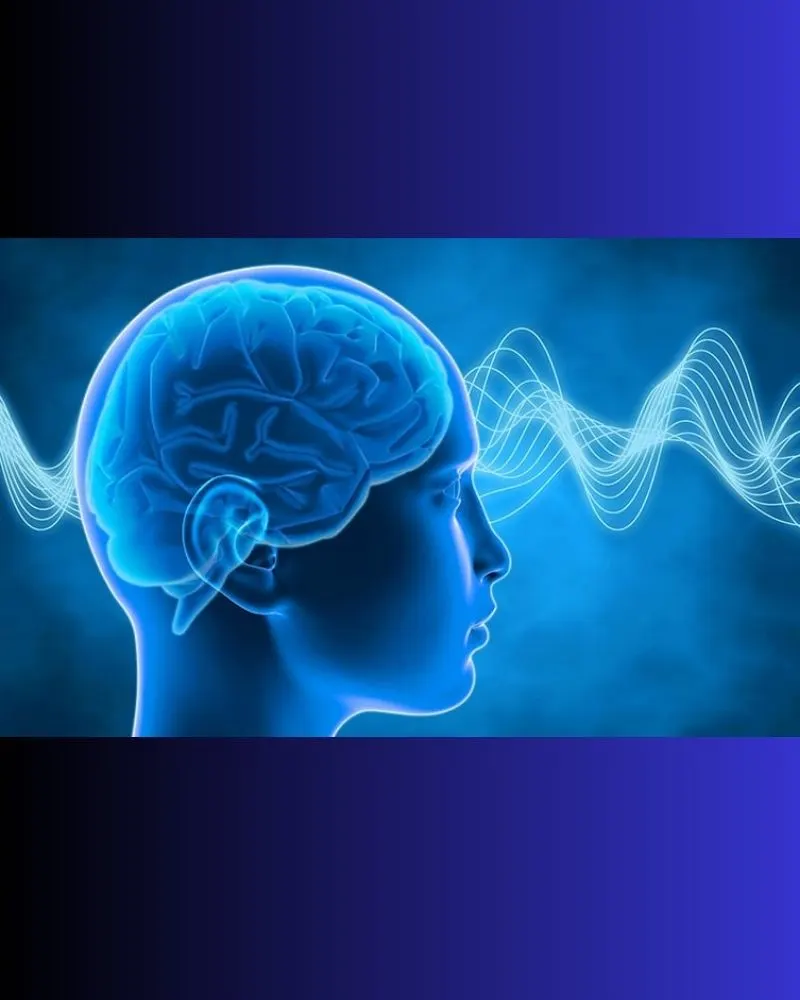
Image Source: starcelebinfo.com
Conclusion: Meditation Is Not an Escape — It’s a Return
In the end, meditation isn’t about escaping the world. It’s about returning to yourself. It’s about peeling back the layers of stress, fear, and noise to rediscover the peace that has always lived within you. When you meditate, you don’t become someone new. You remember who you already are — strong, calm, whole.
So if you’re feeling lost, anxious, or burned out, try sitting in stillness. Not to fix yourself, but to feel yourself again. You don’t need to go anywhere. The peace you’re seeking is already inside you — and meditation is how you find your way home.




